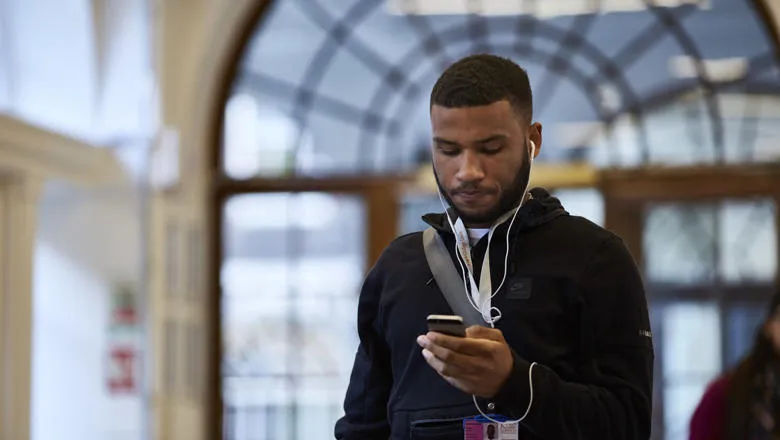“The Covid-19 pandemic introduced a period of unparalleled pressure on frontline healthcare workers; pressure which arguably remains today. Many organisations have admirably sought to support staff during the pandemic through a range of initiatives, however, there has so far been a lack of evidence as to what works and for whom. Our study established that a smartphone based mental health support for health workers can be of help”.
Professor Sir Simon Wessely, Regius Professor of Psychiatry at King’s IoPPN and the study’s senior author
06 September 2022
Landmark trial of NHS staff reveals promising solution to improve mental health
New research from the Institute of Psychiatry, Psychology, & Neuroscience (IoPPN) at King’s College London has found that the mental health and wellbeing of frontline NHS healthcare workers can be supported and improved through the use of the ‘Koa Foundations’ mental health and wellbeing smartphone application.

The study, published in the British Journal of Psychiatry, found that use of the app by clinical and non-clinical health care workers in England was associated with a statistically significant improvement in mental health and wellbeing, as well as a decrease in the likelihood of experiencing insomnia.
Over a thousand health care workers across England were recruited from staff currently participating in NHS Check, the UK's largest survey of the mental health and wellbeing of NHS staff during Covid-19 of its kind. Around half of the participants were provided access to the Koa Foundations app and were followed up with surveys at four and eight weeks of use.
The researchers found that use of the app was associated with a significant reduction in symptoms of behavioural or intellectual distress at each of the follow ups, with the effects most strongly seen in women, clinical staff, and younger participants.
Dr Sam Gnanapragasam, NIHR Academic Clinical Fellow in Psychiatry at King’s IoPPN and the study’s first author said, “Working patterns can make it difficult for health workers to find a consistent time to get help, while the lack of anonymity when asking for help can put off many from even trying in the first place. The study is promising as it suggests that a smartphone based mental health solution can overcome some of these traditional barriers to help staff who use it”.
Dr. Ben Carter, Reader at King’s IoPPN and study senior statistician, said “The results show the App offered a improvement in symptoms. This is promising as we have undertaken a large robust randomised controlled trial, which enrolled a typical healthcare worker population with a range of symptoms. This means the findings are likely to be generalisable to the hospital workforce across the UK. Going forward the App could be offered throughout the UK with ease and at scale to provide an effective intervention to support our NHS workforce.”
Dr. Oliver Harrison, CEO of Koa Health said, “The pandemic has been one of the most stressful peacetime eras in living memory. It is no secret the pressure it put on the NHS and the healthcare workers that worked tirelessly to save lives. Pre-pandemic the NHS was already over stretched with a lack of available clinicians to meet the wide-scale mental health demands of the population. Evidence-based, clinically validated digital mental health tools present the only scalable way to combat this crisis. These promising results show that Koa Foundations can serve as an effective treatment for improving the mental health and well-being of NHS healthcare workers, in some cases significantly. We look forward to further investigating how Koa Foundations can help meet the mental health needs of all those in need of support.”
Co-investigator, Professor Rosalind Raine (UCL Department of Applied Health Research), said, “It’s crucial that we support frontline NHS healthcare workers. Our randomised trial provides the gold standard evidence for the apps positive impact on general mental health which can help hard-pressed staff seeking help”.
Multicentre, England-wide randomised controlled trial of the ‘Koa Foundations’ smartphone application in improving mental health and well-being in a healthcare worker population (DOI10.1192/bjp.2022.103) (Sam N. Gnanapragasam, Rose Tinch-Taylor, Hannah R. Scott, Siobhan Hegarty, Emilia Souliou, Rupa Bhundia, Danielle Lamb, Danny Weston, Neil Greenberg, Ira Madan, Sharon Stevelink, Rosalind Raine, Ben Carter and Simon Wessely) was published in the British Journal of Psychiatry.
For more information, please contact Patrick O’Brien (Senior Media Officer).

